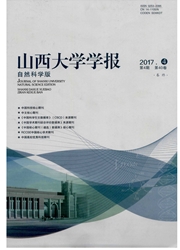

 中文摘要:
中文摘要:
概率近似正确(PAC)是研究"可学习"的理论框架。近年来,研究人员融合贝叶斯方法与不依赖分布的PAC性能度量提出了所谓的PAC-Bayesian学习理论。该理论因其对于任意概念空间任意测度的先验均能给出泛化误差界而在人工智能不同领域的相关算法分析中得到广泛应用。文章综述了PAC-Bayesian学习理论的由来及其核心思想,进而结合大数据的特点,论述了PAC-Bayesian适合于大数据相关算法的理论分析。
 英文摘要:
英文摘要:
The theory of probably approximately correct(PAC)is a framework for the study of learnable.In recent years,researchers combined Bayesian method with distribution-free PAC guarantees and proposed so-called PAC-Bayesian learning theory.This theory can give generalization error bounds for an arbitrany prior measure on an arbitrary concept space,so it has been widely used in different fields of artificial intelligence to analyze related algorithms.This paper surveys the derivation of PAC-Bayesian learning theory and its core ideas.Further,considering the characteristics of big data,this paper discusses why PAC-Bayesian is useful for theoretical analysis of the related algorithms for big data.
 同期刊论文项目
同期刊论文项目
 同项目期刊论文
同项目期刊论文
 Adaptive iterative learning control of non-linear MIMO continuous systems with iteration - varying i
Adaptive iterative learning control of non-linear MIMO continuous systems with iteration - varying i Multiple Populations for Multiple Objectives : A Coevolutionary Technique for Solving Multiobjective
Multiple Populations for Multiple Objectives : A Coevolutionary Technique for Solving Multiobjective Single Image Super-Resolution Using Combined Total Variation Regularization by Split Bregman Iterati
Single Image Super-Resolution Using Combined Total Variation Regularization by Split Bregman Iterati WTrack: HMM-based Walk Pattern Recognition and Indoor Pedestrian Tracking Using Phone Inertial Senso
WTrack: HMM-based Walk Pattern Recognition and Indoor Pedestrian Tracking Using Phone Inertial Senso A particle swarm optimization using local stochastic search and enhancing diversity for continuous o
A particle swarm optimization using local stochastic search and enhancing diversity for continuous o Robust iterative learning control with rectifying action for nonlinear discrete time-delayed systems
Robust iterative learning control with rectifying action for nonlinear discrete time-delayed systems Improved heuristic equivalent search algorithm based on Maximal Information Coefficient for Bayesian
Improved heuristic equivalent search algorithm based on Maximal Information Coefficient for Bayesian A novel pheromone-based evolutionary algorithmfor solving degree-constrained minimum spanning tree p
A novel pheromone-based evolutionary algorithmfor solving degree-constrained minimum spanning tree p MICHAC:Defect Prediction via Feature Selection based on Maximal InformationCoefficient with Hierarch
MICHAC:Defect Prediction via Feature Selection based on Maximal InformationCoefficient with Hierarch Adaptive ILC algorithms of nonlinear continuous systems with non-parametric uncertainties for non-re
Adaptive ILC algorithms of nonlinear continuous systems with non-parametric uncertainties for non-re Discriminative subspace learning with sparse representation view-based model for robust visual track
Discriminative subspace learning with sparse representation view-based model for robust visual track Robust iterative learning control with rectifying action for nonlinear discrete time - delayed syste
Robust iterative learning control with rectifying action for nonlinear discrete time - delayed syste Adaptive ILC for tracking non-repetitive reference trajectoryof 2-D FMM under random boundary condit
Adaptive ILC for tracking non-repetitive reference trajectoryof 2-D FMM under random boundary condit Iterative learning control for lineardiscrete-time systems with high relative degree under initial s
Iterative learning control for lineardiscrete-time systems with high relative degree under initial s A unified adaptive control framework ofnon-parameterized nonlinear continuous systems for repetitive
A unified adaptive control framework ofnon-parameterized nonlinear continuous systems for repetitive 期刊信息
期刊信息
